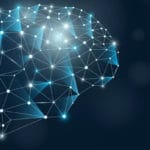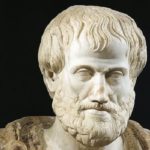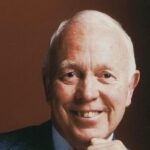Plato’s Theory of Recollection

Plato’s Theory of Recollection: this article explains Plato’s Theory of Recollection in a practical way. The theory also called the Anamnesis Theory, and was found in Plato’s Main dialogue. After reading, you will understand this theory of personal development in which the concepts of innate ideas that each human being possesses are found.
What is Plato’s Theory of Recollection?
This theory was found in Plato’s epistemology, in his dialogue Main (virtue) and Phaedo (soul) as a principle of knowledge. In the Theory of Recollection, according to Plato, it is the remembrance of the ideas that each human being possesses in an innate way in the soul. Knowledge is not found in the external world, but is internally located, in the consciousness.
This theory affirms that the soul of the human being is immortal and knows the truth before entering the body. This is why man gradually remembers what the soul already knew when it inhabited the world of ideas, but which the soul, already being in the human body, buries in the depths of being the knowledge, which is gradually remembered with the physical realities (objects) of the sensible world.
Knowledge: The Sensitive World and the Intelligible World
For Plato, knowledge is an idea that is divided into two segments: the sensitive world and the intelligible world.
The sensitive world
This world is composed of shadows, images and objects with which opinion is triggered, which is considered as the intermediate between ignorance and knowledge.
Intelligible world of ideas (immaterial)
Mathematics and ideas are what generates knowledge. Intuition and reasoning are the pillars for knowledge.
It is also considered that knowledge is reminiscence, remembering what the soul already knew, since the soul is eternal.
Plato’s Theory of Recollection: Concept of the soul according to Plato
Plato’s conception is that the soul is immortal and that it leads to reincarnation from the ethical realm. He was sure of this because in this way, one can reward just people or punish unjust people when the soul passes to another body.
Another conception is reminiscence, the soul remembers what it knew before, this means that the soul exists before the birth of the human being and will not cease to exist after his death.
This means that the soul exists before the birth of the human being and will not cease to exist after his death. According to Plato, true knowledge must come from the mind / soul.
An example of this is mathematics in which one does not need to feel or experiment to arrive at a true result, but on the other hand sensations cause the person to create individual perceptions subject to subjective opinion that is not necessarily true.
For a better explanation of Plato’s Theory of Recollection, Plato used a myth to easily explain its thought and structure.
All this is found in the world of ideas in which, according to Plato, souls are also found before they incarnate in bodies and are born. That is why, according to him, all knowledge is found in the soul of the human being, but only by contact with copies or reflections of forms or ideas is he able to remember them.
Myth Winged car allegory
With the analogy of this myth, Plato tries to explain the soul and the human desire for knowledge.
There is a driver, a chariot with wings and two horses. The driver, also called the charioteer, controls and directs the two horses, one white and one black. The white horse is noble, obedient and strong, the other black horse is disobedient and bad.
These characters are the representation of the parts of the soul. The black horse is the concupiscible part that pursues the irrational pleasures and desires that are difficult to control. The white horse on the other hand is the irascible part, rational passions, the rational part tied to justice. The driver is the ‘reason’ which directs and governs the horses harmoniously.
The chariot with the wings gives the action of flight to get up to where the gods are, a beautiful, wise and good place (the place of ideas) but if the black horse gets out of control and the charioteer loses his balance, it will cause a fall to the sensitive plane where the chariot will lose its wings and therefore the soul will enter the body. When the soul is in the body it begins with a constant growth of knowledge so that it can return to the world of ideas at some point.
The only rule was that, if one of the horses was revealed and the driver lost control, the soul would be expelled to the sensible world (imperfect world) where the body which is the “prison” captures the soul and would forget all the knowledge it possessed of the world of ideas.
The solution to reach freedom according to Plato is to reach the maximum knowledge, if this is not achieved the soul will continue rotating through different bodies until finally returning to the world of ideas.
That is why the human being, in spite of having hidden or buried knowledge, takes charge little by little of bringing it to light, remembering the ‘knowledge’ by objects that are copies of the world of ideas, called by Plato Anamnesis which is memory or reminiscence.
Mythology as an explanatory form of Plato’s concepts
It is important to take the myth of Plato as a metaphor for the explanation of knowledge in a philosophical way, a form of thought and reflection. Through stories it is easier to understand these philosophical concepts, however, the interpretation of these myths can be difficult, if understood in a literal way. A literary and intellectual level is then needed to understand their theory more easily.
Plato’s Dotrina as a concept of knowledge and government
Knowledge and learning according to Plato is the remembrance of the past, where the soul could see ideas and forms without any barriers.
This dotrina also seeks to explain the difference of human beings and their development in learning. It is not possible that all people are equal. There are some who are more rational, others who are braver and others who only want to satisfy their own desires. This is why only a few can govern, since not everyone has the rational capacity. If everyone wanted to rule it would be completely chaotic.
Personal development linked to knowledge
Learning is the bridge to acquire knowledge. However, knowledge is already innate in the human being, so it is necessary to bring it out through learning and teaching.
Although knowledge according to Plato may be innate, it is necessary to speak of the guide who can help us understand this knowledge that we carry within us. This guide would be the professor or teacher who directs us to understand much better and put into action what we already know.
Socrates explains the paradox of meno using the theory of Reminiscence. Where it is possible to remember what we already knew and thus use learning and teaching as a method of remembering. We all have innate ideas that arise in the form of memories.
Example of an explanation of the dialogue of meno
Socrates meets with a slave and begins asking him mathematical questions. With Socrates’ guidance, the slave is able to answer and solve the mathematical problem he is being shown.
With the appropriate questions asked by Socrates these served as a guide for the slave to arrive at the solution. This means that, even if a person does not know about a particular subject, but has adequate guidance, he can arrive at sensible answers.
This is why Plato thinks that knowledge does not come from the external world but from the interior of each person since memories are awakened, this being a stimulus for personal development where the teacher, master or guide can help direct this knowledge in an adequate manner.
Plato’s Reminiscence Theory in this 21st Century
The Theory of Recollection comes from philosophy, which is the study of the truth about fundamental problems that embrace knowledge, existence, truth, beauty, love and language.
Philosophy is in charge of making debates that make the human being reflect and, above all, to ask all kinds of questions in order to arrive at the truth with rational arguments.
The Theory of Recollection, is one of the theories born from philosophy as a method to understand knowledge; that knowledge that the human being has looked for centuries to develop, create and innovate in the world, since knowledge in the end is a tool of power that in many cases can control, systematize and develop to do good or evil.
An example of knowledge as development in this XXI century, are the technological advances that have been created and implemented to improve the quality of life in terms of health, work and education, however, knowledge has also generated power battles, wars and biotechnological creations such as nuclear bombs, weapons, among other things used specifically to reinforce the power of humanity in a negative way.
With this the human being has had a personal development during centuries, where he has put his knowledge to test and where he has not been limited to make use of it and advance. From the point of view of leadership, people have not been limited either to manage knowledge and guide in the teaching of it, through learning.
It is here where the role of the leader, teacher, master or guide is fundamental for knowledge because according to Plato every person has innate knowledge, but it is necessary to have someone to be able to remember that which we have internally. With the right questions and guidance, it is possible to reach the maximum development we want in knowledge.
Criticism on Plato’s Theory of Recollection
Aristotle criticizes the Theory of Recollection (anamnesis) in his philosophical work, Peri Ideōn, on knowledge.
According to Aristotle, knowledge can be acquired by means of experiences in the sensitive world. On the other hand, for Plato, knowledge starts from the intelligible world, the ideas, and not from the sensitive world, since this only provides us with the creation of opinion.
For Aristotle, knowledge is acquired over time through the experience, something that is not innate. Being his student, Aristotle developed his own theories of his way of thinking.
With Aristotle’s Epagōgê (Induction- Growing) the sensitive experience is the basis of being able to achieve the memory. For him, if one has not lived, one cannot remember what would then be reminiscence. Knowledge is not discovered, but perceived for him.
Plato’s Theory of Recollection summary
Philosophy helps to put topics on the table for reflection and searching for truth. From the point of view of personal development Plato proposes knowledge as a pure value that is in each person and that can be awakened through memory (Anamnesis Reminiscence), this being possible through the contact of the objects-copies that we find.
Human beings have the power to know and empower themselves with the knowledge to use it in a positive or negative way in the world, as it was commented with the technological development and the advances that have been generated in the 21st century.
Sharing this knowledge that each person has or empowering knowledge in others, is the process of learning and teaching that Socrates comments on as a form of success for personal development.
It’s your turn
What do you think?Was Plato’s Theory of Recollection one of the pillars of knowledge debate about individual personal development? Did you know about this philosophical theory or is it something new for you? Do you have anything else to add or any suggestions?
Share your experience and knowledge in the comments box below.
More information
- Gulley, N. (1954). Plato’s theory of recollection. The Classical Quarterly, 4(3-4), 194-213.
- Ebert, T. (1973). Plato’s theory of recollection reconsidered: An interpretation of Meno 80a-86c.
- Tarrant, H. (2005). Recollecting Plato’s Meno. London: Duckworth.
- Irwin, T. (1974). Recollection and Plato’s moral theory. The Review of Metaphysics, 27(4), 752-772.
How to cite this article:
Ospina Avendano, D. (2020). Plato’s Theory of Recollection. Retrieved [insert date] from toolshero: https://www.toolshero.com/personal-development/plato-theory-of-recollection/
Original publication date: 08/31/2020 | Last update: 11/08/2023
Add a link to this page on your website:
<a href=”https://www.toolshero.com/personal-development/plato-theory-of-recollection/”>toolshero: Plato’s Theory of Recollection</a>












